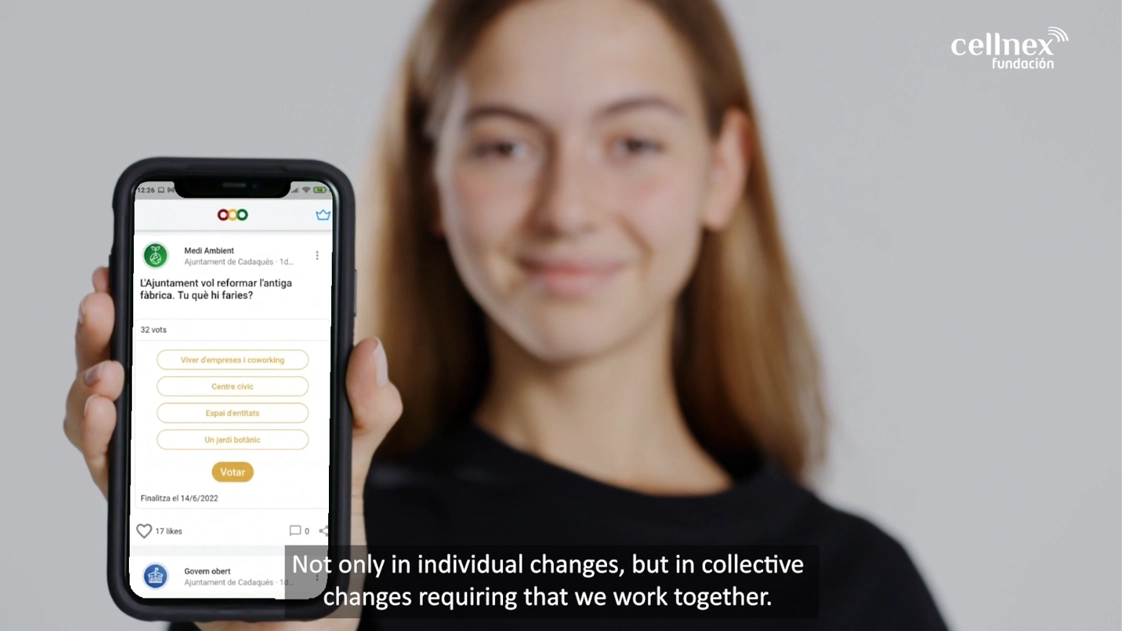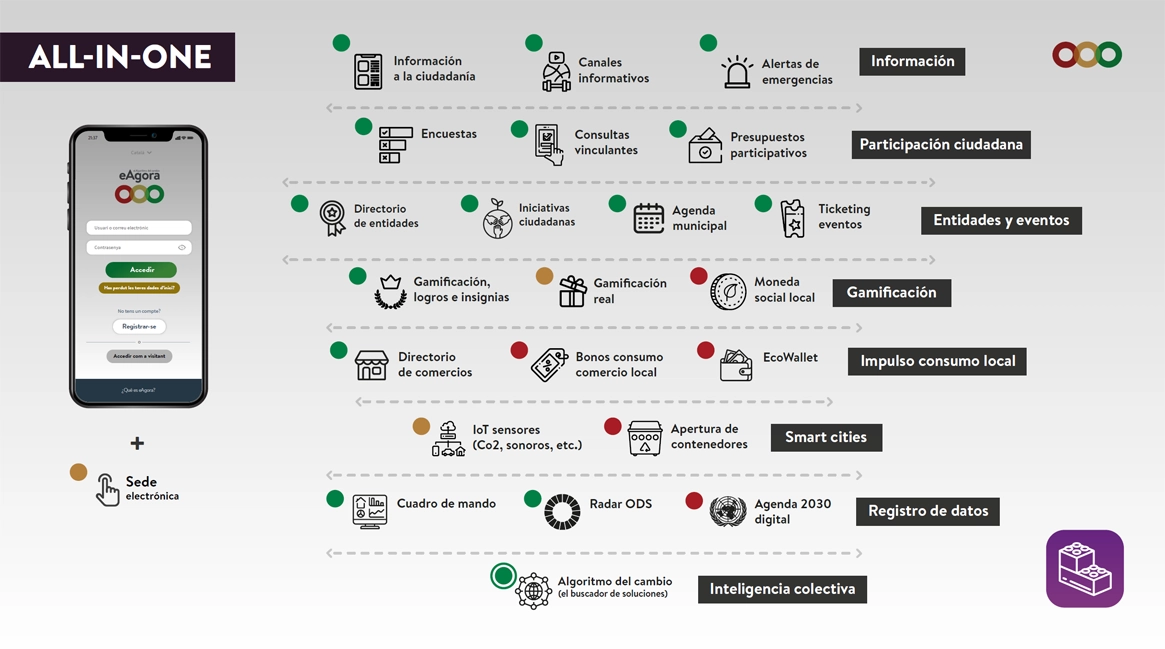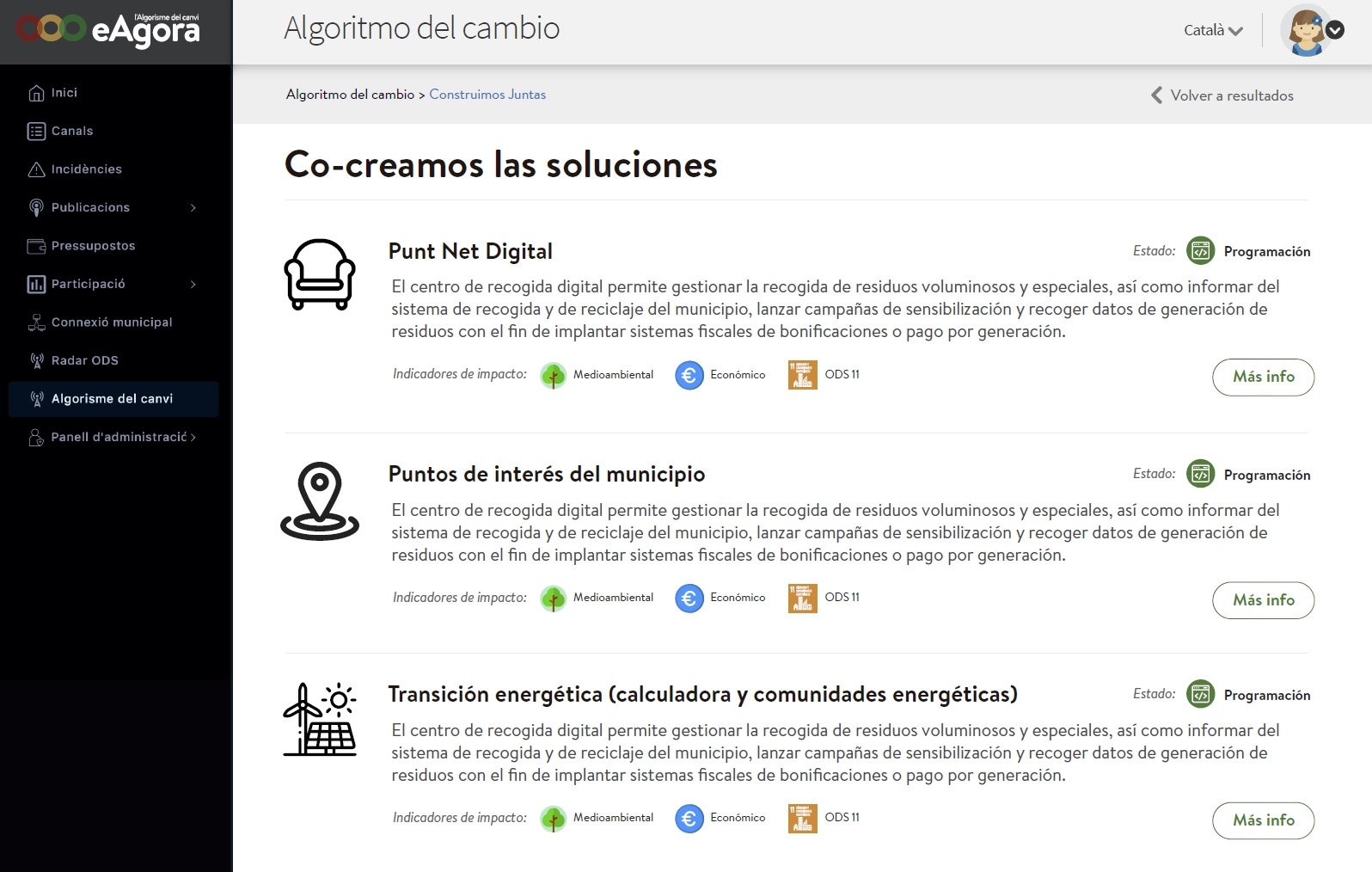Trends
Trends
JUN
30
2022
Spain
A digital platform to encourage civic engagement
Shall we talk about it in the square?
Agora is a word of Greek origin that refers to public squares in ancient Greece and its citizens’ participation in the management of public affairs. It is also a major defining element in the origin of eAgora, a kind of digital meeting and consensus-building space to connect leaders and residents of towns and build a participatory culture to address as a community the challenges of the sustainable economy of which we all dream.
“We are a global platform that aims to facilitate a new democratic culture, based on participatory governance”, explains Martín Garrido, CEO and co-founder, in the interview. “Under the current paradigm, we vote every four years and we expect public administrators to solve our problems. But we have seen that we are facing challenges, and not only climate change, which need each of us to engage not just with our individual attitudes but also with collective behaviour that requires joint action.”
That reflection gave birth to the idea for this start-up, one of three selected by the Cellnex Foundation in its Bridge project to accelerate digital projects with high social impact.
“We wanted to generate this idea of the Agora in Athens and encourage interaction between the public and leaders on impactful issues to jointly develop a 2030 Agenda that is invisible without the participation of governments, people, businesses and associations.”
Recognising the collective nature of the Agenda and the UN Sustainable Development Goals, the four founders identified three basic elements that were key to their idea: public disaffection, dispersion and/or limited digitalisation of public administrations, and lack of development and connection for individuals in the smart cities that we want, to turn towns into more sustainable and connected spaces.
“These three problems gave rise to the idea of creating a super-app that can become the first modular all-in-one solution on the market for connecting with the public.”
“Barcelona City Council has 23 apps available. It’s hard enough to persuade people to download one app, never mind more than 20. We aim to accelerate communication and participation through a simple and impactful channel that also makes it possible to build an ecosystem to connect organisations, governments, businesses and the public to facilitate crucial changes”, says Martín.
To begin with, the project consists of a two-pronged solution that includes a mobile app for the community and a web-based dashboard for local authorities, segmented by modules and themes, with the possibility to add functionalities.
At present, 38 local authorities use the app but their client portfolio includes another 390 municipalities in which they hope to integrate a service that goes far beyond reporting municipal incidents or acting as a notice board and has already given rise to a participatory budget vote in the town of Altafulla in Catalonia and a move to gather local improvement challenges from secondary school students in the Balearic Islands. The app already offers other simple interactions that are sometimes encumbered by bureaucracy, such as booking or paying for tickets for events, or something as mundane as a municipal swimming pool pass.
Municipalities can use the app to launch cooperation proposals, but members of the public also share initiatives themselves, which range from cleaning beaches to organising support teams for the elderly to book drives.
“We want to facilitate a change that is already happening. A lot of people and organisations are working for the community in various places and in several areas, but there is a connection problem. We want to be a megaphone and a facilitator.”
In fact, in the coming days the group will open up its proof of concept to share its experiences with 8,000 councils.
“The greater the number of municipalities that think of solutions, the better and more scalable they will be”, explains Martín, adding that they are already working on a web version of the platform and other interaction formats that do not require a mobile phone.
But their ambition reaches far beyond formats. “We would like to automate many more processes. Our ultimate goal is that when you think of any public interaction, from downloading a certificate to paying a tax bill or voting, you can do it in one place. Three or four years from now we expect that eAgora will be integrated into your car and you can just say: ‘Make me a doctor’s appointment’ or ‘Where can I park near the football ground?’”
The initiative also aims to offer people “the last mile” in smart cities. “Administrations publish data on pollution, atmospheric hazards, etc., but we, the public, don’t look it up. Our lives are too busy to search for the data and we want to be one step ahead. If someone is approaching an area that may be flooded, for example, the technology will automatically divert them to another road.”
The Cellnex Foundation plays a major role in this ambition. “Bridge has been a huge boost, with personalised help that is unheard of in this type of programme. The mentors gave us a complete impact vision, far beyond profitability and business models. We have really accelerated over the past few months.”
“In five or ten years we see ourselves on three or four continents, offering all-in-one solutions to the largest number of people possible, with the challenge of being useful both in Sweden, where the level of resolved environmental challenges is very high, and in Burkina Faso, where we’ll focus on SDGs 1 and 2”, he concludes.





















